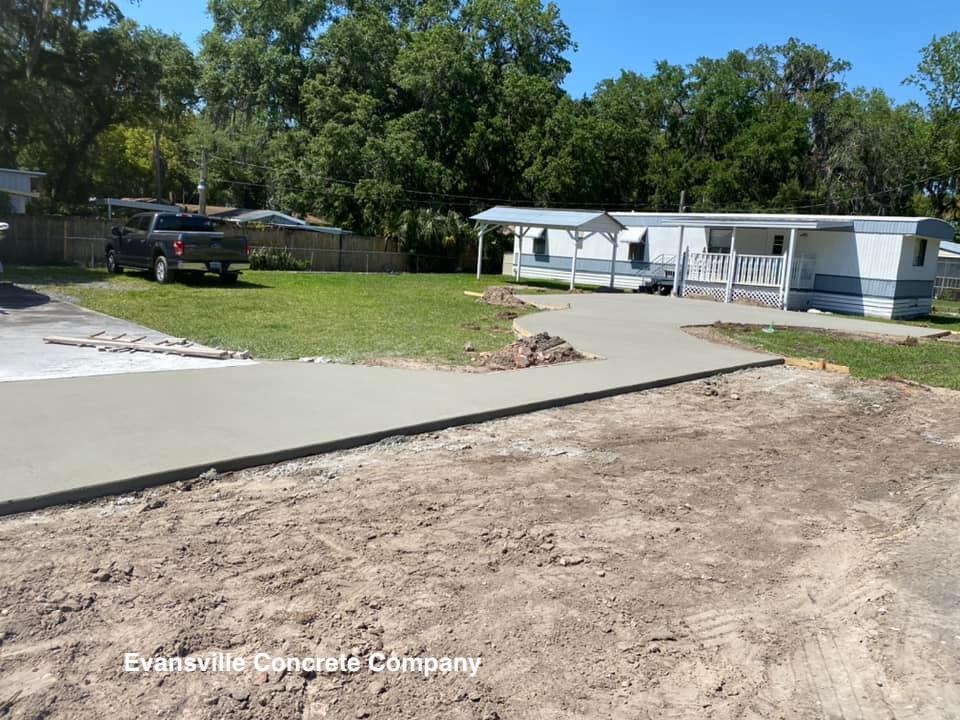Do you have a newly installed concrete surface but are not sure how long it will last? Concrete can be a great choice of material whether you’re planning to install an exterior or interior surface. This is because concrete provides many sorts of benefits which includes the little need for maintenance. Additionally, there is the initial outlay for a concrete driveway which is higher than many other materials, but this investment can pay itself off in lowered maintenance costs.
Although it is true that concrete is a material that is popular for being very durable and long-lasting, however, that is not always the case. There are lots of factors that can affect concrete’s performance and durability. These will likely shorten the typical life span of concrete which is 25-30 years. Keep in mind that if the condition of concrete is preserved properly, with proper installation and maintenance, concrete can even last up to 50 years.
Methods To Improve Concrete’s Lifespan
As mentioned, proper preservation, installation, and maintenance can prolong concrete’s lifespan up to 50 years, which is still a great time difference to maximize your investments. The following techniques will allow you to properly preserve your concrete:
- Patching up stress cracks. These types of cracks appear due to temperature changes, heavy loads, and even natural settling. When the concrete has unattended cracks, they tend to get damaged more, worsening the severity of the crack.
Fortunately, when it comes to the patching of cracks in a concrete surface, it is considered to be a rather simple and relatively inexpensive repair project. These cracks can usually be filled and repaired if the rest of the surface is in good shape, and was installed properly in the first place.
- Another type of damage that can severely affect concrete’s lifespan is potholes. These holes, similarly to cracks, may cause serious issues. Just as with cracks, potholes can provide an entrance for water, allowing it to seep through inside the concrete.
This water will expand and contract as a part of the freezing and thawing cycle and create further cracking and potholes, which can be a serious problem, especially for exterior concrete surfaces such as driveways, patios, or walkways. If you’re having these problems or you’re worried your concrete may be suffering from this, then contact a concrete professional to immediately appraise it and get to work on repairing it.
- Concrete reinforcements are another thing. There is a thing called rebar that serves as concrete support, which is undoubtedly stronger than wire mesh. Several constructors consider rebar for domestic jobs. For thicker driveways and locations that involve greater traffic, rebar is always a good option to consider. Reinforced outer layers can avoid chips and cracks around the edges.
- Properly taking cleaning the concrete surface. Although it is important to regularly check your concrete and attend to all cracks and damages before they get big enough, it is also important to constantly remove debris, snow, as well as road salt off of the concrete surface. By doing so, you can avoid any moisture issues even if there are some cracks and damages that were left unnoticed.
Signs That You Need A Evansville Concrete Contractor
Although it is important to take care of your concrete and lengthen its lifespan, however, it is inevitable that your concrete will break at some point. Before this happens, your concrete will be showing signs that you would have to attend to. Contact your local Evansville concrete company that specializes in concrete driveways for your next project.
Apart from cracks and potholes appearing, sunken concrete can also be a sign that you need a professional to take care of your concrete. This is because even though resin water and sprinkler water runs down the slope and into the gutter or the street, some damage such as cracks, pits, potholes, or improper grading can hinder it, thus it may sink through to the foundation of the concrete, causing the foundation to erode away. When this occurs, your concrete surface may sink.
